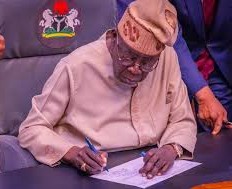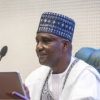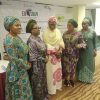As the world marks the International Day of Democracy under the theme “Ensuring effective governance of AI at all levels,” it provides an opportunity to examine and reflect on Nigeria’s democratic system, the challenges it faces, and how the intervention of Artificial Intelligence can help provide solutions to these challenges. In the context of increasing
As the world marks the International Day of Democracy under the theme “Ensuring effective governance of AI at all levels,” it provides an opportunity to examine and reflect on Nigeria’s democratic system, the challenges it faces, and how the intervention of Artificial Intelligence can help provide solutions to these challenges.
In the context of increasing digitalisation, Nigeria has maintained its democratic system since 1999. For continued development, there are considerations for reforming the electoral system, strengthening institutions, addressing poverty, protecting civic space, and establishing governance frameworks for emerging technologies such as AI.
Artificial Intelligence (AI) is now a powerful tool for governance, civic engagement, and accountability. The tool alone cannot safeguard democracy without inclusive growth, strong institutions, and citizen empowerment.
The nation has maintained civilian governance for 25 years, marking its longest period of continuity. However, mere persistence does not necessarily equate to resilience or robustness.
Nigeria’s democracy faces ongoing challenges related to institutional effectiveness, corruption, security concerns, and public confidence. There is a noted decline in trust toward elections, which play a central role in democratic systems. When trust in electoral processes decreases, it can impact the perceived legitimacy of democratic institutions and governance.
Elections and Trust Issues
Elections are a fundamental element of democratic governance; however, in Nigeria, they have frequently been associated with controversy rather than fostering public trust. Notable examples include the annulled June 12, 1993, election and the disputed results of both 2007 and 2023, which have repeatedly raised concerns regarding the integrity of the electoral process.
The data presents a clear narrative: voter turnout, which was approximately 69% in 2003, declined to below 27% during the 2023 general elections, as reported by the Independent National Electoral Commission (INEC). This significant reduction, observed in a nation with more than 93 million registered voters, indicates increasing public mistrust toward the electoral system.
Technological tools such as the Bimodal Voter Accreditation System (BVAS) and the INEC Result Viewing Portal (IReV) were created to enhance transparency. These systems have introduced certain advancements, but technical issues and delays in uploads during 2023 led to some concerns. Artificial intelligence may contribute to electoral processes by identifying irregularities, managing voter databases, and supporting real-time transparency.
Without sufficient political will and institutional independence, technology on its own is unable to fully protect democratic systems, as electoral technology depends on the effectiveness of the institutions overseeing it. If the frameworks supporting democracy lack strength, mistrust may continue.
Institutions Requiring Renewal
Democracy thrives when institutions, not individuals, are strong. In Nigeria, however, politics often revolves around personalities and patronage rather than systems. The judiciary has faced frequent allegations of compromise, while the legislature and civil service often struggle with inefficiency and weak oversight.
According to Transparency International’s Corruption Perception Index 2024, Nigeria ranked 145 out of 180 countries, a stark reminder that corruption remains a systemic problem. Without tackling this, AI or any other innovation risks being captured by elites rather than serving the people.
Robust institutions are needed to provide the frameworks for ethical governance of AI — ensuring transparency, accountability, and fairness in deployment. Without them, technology could amplify biases and manipulation, further eroding trust. But the weakness of institutions is not just an administrative problem; it has very real consequences for citizens, particularly in a country where poverty is widespread.
Poverty and the Price of Democracy
The National Bureau of Statistics (NBS) reported in 2022 that 63% of Nigerians (over 133 million people) are living in multidimensional poverty. This makes citizens vulnerable to vote-buying and patronage politics, undermining the democratic process.
A democracy built on poverty is always at risk. Job creation, functional social safety nets, and inclusive economic growth are not just economic priorities; they are democratic safeguards. Citizens with dignity and opportunity are more likely to vote freely, resist manipulation, and hold leaders accountable.
AI has the potential to optimise service delivery, refine social welfare targeting, and increase public-sector efficiency. However, poverty is also closely linked to insecurity, which remains a significant challenge undermining Nigeria’s democratic institutions.
Security and Shrinking Civic Space
Insecurity remains a major obstacle. The International Crisis Group estimates that insurgency, banditry, and separatist violence collectively displace over 3 million Nigerians. These crises disrupt elections, reduce participation, and erode faith in democracy.
Meanwhile, the civil society groups and journalists face increasing restrictions, undermining accountability. AI tools may help monitor security threats and track disinformation, but democracy cannot thrive under fear. Civic participation must be protected, not stifled.
AI Governance: A Test for Democracy
As discussions around artificial intelligence become more prominent worldwide, Nigeria may play a significant role. AI has the potential to impact elections, public administration, and service delivery; however, the absence of clear ethical frameworks could lead to increased inequality or greater centralisation of authority.
Creating an inclusive AI governance model involving civil society, academia, business, and citizens is essential. With effective oversight, AI can boost transparency, counter disinformation, and expand access to justice. Poor governance risks increasing mistrust, empowering elites, and further disconnecting citizens from democracy.
Digital Era Reform Recommendations
Artificial intelligence has the potential to support democratic processes when paired with reforms that promote dignity, fairness, and inclusion. On this International Day of Democracy, Nigeria faces the important task of strengthening its democracy to ensure it is effective and equitable for all citizens.
If Nigeria aims to maintain its democratic system for future generations, reforms may be necessary. Since elections play a central role in democracy, it is important to ensure the accuracy of vote counting. This could involve implementing technologies such as BVAS and IReV, ensuring their reliability, and promoting transparency for the public.
Also, the laws governing elections must be enforced impartially, ensuring that perpetrators of electoral malpractice face real consequences. A system where elites can manipulate outcomes without accountability will never inspire citizen trust.
The judiciary should operate independently, without political influence, and with financial and administrative autonomy. The legislature acts to provide oversight of the executive branch, while the civil service is expected to maintain professionalism to support continuity and fairness in governance.
Such reforms would establish the principles necessary for effective governance while also delivering a structured approach for the ethical and responsible oversight of AI and related technologies.
Addressing Poverty is Another Critical Reform.
A democracy with 133 million people in poverty remains vulnerable to manipulation. Reducing poverty is not only a development goal but also protects democracy. Creating jobs for Nigeria’s youth, who make up over 60% of the population, is crucial to lowering unemployment and supporting free electoral choices.
Additionally, it is important to consider both security and civic freedoms. Effective participation in a democracy is limited when citizens experience threats or restrictions. Nigeria could benefit from a comprehensive approach to security that includes addressing underlying issues such as inequality, access to education, and social justice, rather than relying solely on military measures.
Civil society organisations, journalists, and activists are essential for ensuring accountability among leaders. Limiting their activities can undermine democratic principles. Governments that are secure in their legitimacy should embrace oversight rather than regard it with apprehension.
Nigeria should approach the global discourse on AI governance with diligence and foresight. Artificial intelligence is already influencing elections, public communications, and service delivery internationally. Nigeria needs to formulate transparent and inclusive policies that guide AI usage, with an emphasis on fairness, rights protection, and improving governance rather than facilitating manipulation or exacerbating inequality. Establishing clear ethical guidelines and engaging citizens in policy discussions will enable Nigeria to assume a prominent role in responsible AI governance across the continent.



















